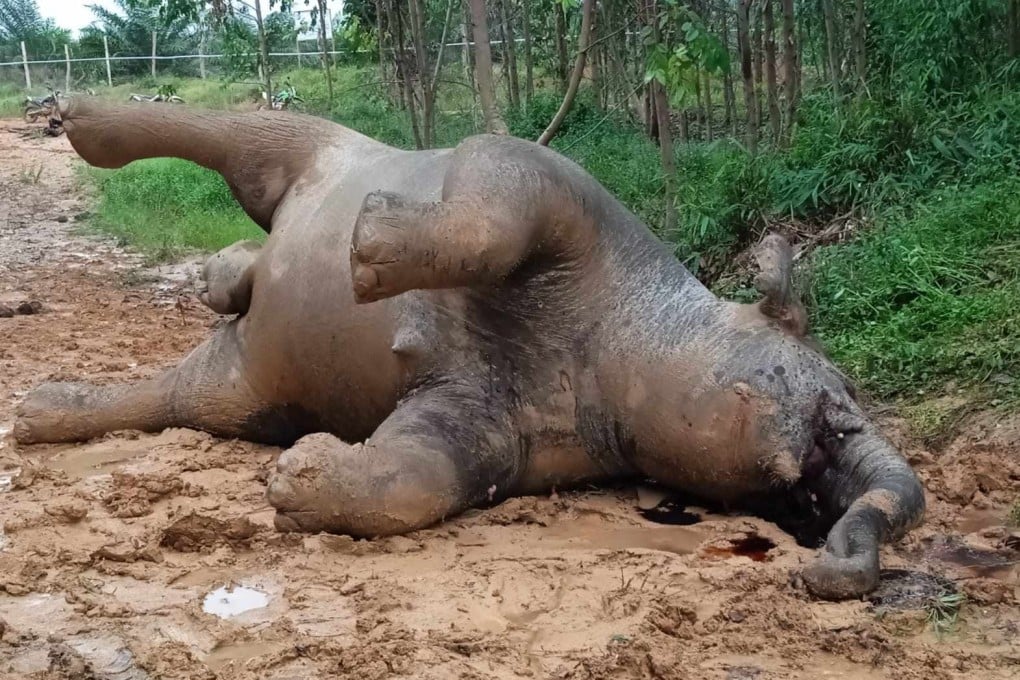Fears for Indonesia’s Sumatran elephants after pregnant animal dies of suspected poisoning
- The perennial conflict between humans and wildlife is in the spotlight after the discovery of a dead, pregnant female elephant in Riau province
- Killed for their tusks and straying into plantations, Sumatran elephants are in decline. In Indonesia, only about 1,400-1,600 are left in the wild

About 30 years ago, elephants stalked the village of palm oil farmer Yusro Fadly in Rokan Hulu regency on the island of Sumatra. Since then, their populations across the island have steadily declined; in part because of deforestation, as well as the intensifying conflict between elephants and humans over space.
“We suspect the elephant was poisoned because it was causing problems for the local community,” said Zulhusni Syukri, the programme director of the Rimba Satwa Foundation (RSF), one of the groups that first found the elephant.
In fact, pieces of pineapple were found in its stomach, despite the fruit not growing in the immediate area. Zulhusni said the “friendliest” way to get rid of elephants was to scream and shout, while some farmers also set off handmade rockets that make a loud noise. “But this time, perhaps because the local residents were irritated by the elephant destroying their crops, it seems they poisoned it to try to kill it.”
The area where the elephant was found is dominated by the palm oil and pulp industries, Zulhusni said, which has led to deforestation and elephants wandering onto plantations to feed on oil palm leaves and fruit.